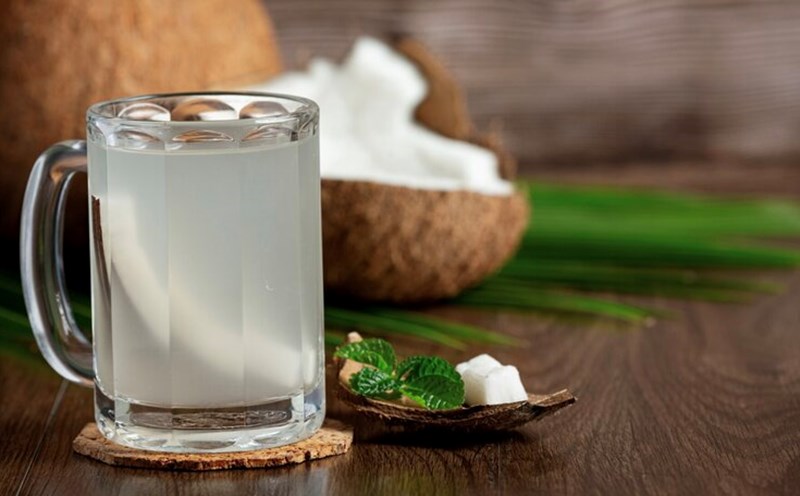A healthy digestive system is a prerequisite for the body to absorb optimal nutrition and maintain immunity. In addition to a diet rich in fiber and vitamins, adding water to aid digestion plays an important role. Here are 4 types of water that experts recommend drinking regularly to protect the intestines and improve digestive function.
1. Water - an irreplaceable foundation
Drinking enough water is a basic step but necessary to maintain the smooth operation of the digestive system. The water helps soften stools, supports waste transportation through the large intestine and prevents constipation.
Experts from the National Institute of Nutrition recommend that adults drink 1.52 liters of filtered water per day, divided equally throughout the day. In the morning, you should warm up with a cup of warm water about 200ml to stimulate bowel movements and purify the body.
Note to avoid drinking a lot of cold water while eating because it can slow down the digestive process and affect the ability to absorb nutrients.
2. Ginger tea - reduces bloating and indigestion
Ginger contains the active ingredient gingerol, which is known for its anti-inflammatory, antibacterial and digestive properties. Drinking warm ginger tea helps reduce stomach cramps, improve blood circulation in the digestive lining and limit nausea and bloating after a high-protein or fatty meal.
How to make simple ginger tea: Thai 34 slices of fresh ginger. Boil 200300ml of water for 510 minutes.
You can add a small spoonful of honey or a few drops of lemon to enhance the flavor.
People with severe stomach ulcers or gastrointestinal bleeding are advised not to abuse ginger.
3. Yogurt - supplements probiotics, supports the intestines
Boiled yogurt contains probiotics that have been shown to maintain the balance of the intestinal microflora, reducing the risk of diarrhea and constipation. Probiotics also help improve symptoms of irritable bowel syndrome (IBS) - a fairly common digestive disorder today.
When choosing yogurt, prioritize sugar-free or low-sugar products to limit the risk of weight gain and imbalance of beneficial bacteria. You should drink 1 bottle (100150ml) after a meal every 3060 minutes, avoid drinking on an empty stomach.
4. Vegetable juice - a rich source of fiber and vitamins
Fresh vegetable juice is rich in soluble fiber, vitamins and antioxidants. Soluble fiber has the effect of softening stools, regulating intestinal motility, supporting intestinal cleansing and reducing inflammation of the stomach lining.
Suggested recipe: Apple + celery: Helps purify the digestive system, supplement vitamin C and potassium.
Amaranth + carrots: Good for the liver, stimulates bile production to support fat digestion.
Drink fresh vegetable juice immediately after processing to ensure vitamin content, limit added sugar or salt.
A healthy digestive system is not only due to food, but also depends on the habit of choosing the right drink. Water, ginger tea, yogurt and vegetable juice are easy to apply options, bringing sustainable benefits.
To maintain long-term digestive health, it is necessary to combine drinking enough water, eating lots of green vegetables, moving gently after eating and keeping a comfortable spirit. When you have unusual symptoms such as prolonged abdominal pain, prolonged diarrhea or unexplained weight loss, you should see a gastroenterologist for timely advice.












